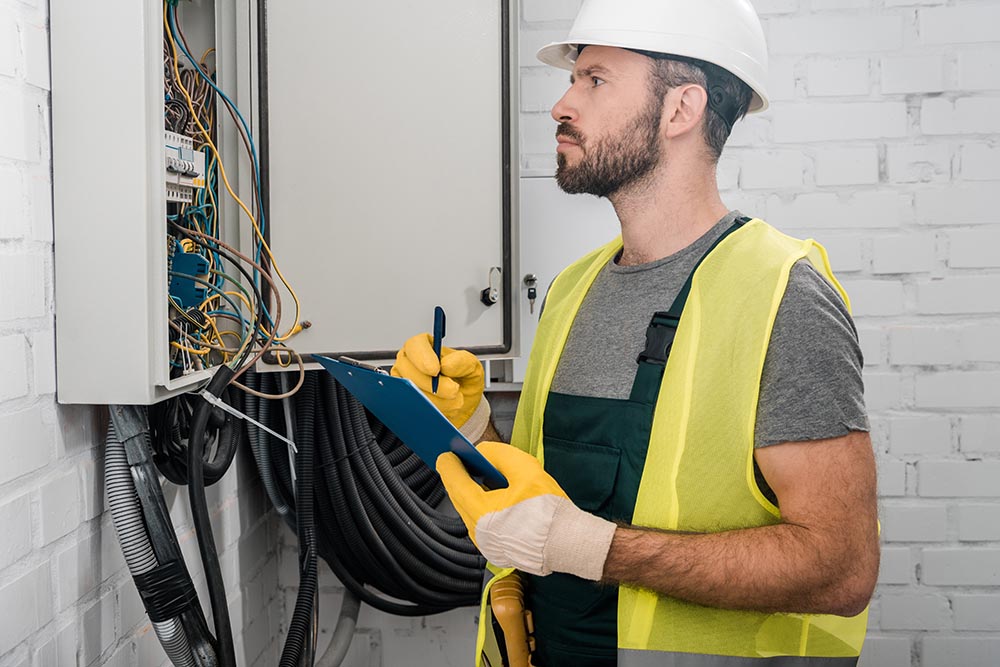Ensuring Present Protection: A Detailed Manual to Power Evaluations

Electrical protection is a critical aspect of ensuring a secure and effective residence or business environment. Routine electrical inspections are essential to confirm that cabling, sockets, and additional parts conform with safety regulations and are working properly. These inspections can assist identify possible hazards prior to they escalate into serious issues, such as electrical fires or equipment failures. Understanding what an electrical assessment includes and the importance of organizing these evaluations can significantly enhance your security and peace of mind.
In this thorough manual, we will explore different facets of electrical evaluations, from frequent faults found during assessments to how regularly you should schedule them. We will also delve into the role these assessments play in residential security, energy optimization, and the defense of your investment. Whether you're a property owner, a first-time buyer, or a business owner, comprehending the ins and outs of electrical evaluations is essential for maintaining a protected and lawful environment.
Grasping Electrical Assessments

Electrical examinations are essential assessments of a building's electrical components, making sure they satisfy safety regulations and regulations. During these evaluations, licensed professionals examine wiring, circuit protectors, outlets, and other electrical parts. The main goal is to identify any potential hazards that could cause fires, electrocution, or other dangerous situations. This comprehensive examination helps preserve the integrity of the electrical system and supports compliance with local codes.
The importance of electrical evaluations cannot be overstated, particularly in residential and commercial buildings. They serve a crucial function in preventing electrical failures, which can be expensive and dangerous. Regular inspections help identify issues early, enabling timely repairs that enhance the safety and efficiency of the electrical system. Homeowners and businesses alike benefit from the peace of mind that comes with being assured their electrical systems is sound.
For both new and existing properties, understanding the scope and needs of electrical inspections is crucial. If you are a homeowner, a prospective buyer, or a business owner, understanding of the evaluation procedure and its importance can help protect your investment. Knowledge with what to anticipate ensures that participants can make informed decisions and create safe environments for their families and employees.
Common Problems and Resolutions
A most frequently encountered problems during electrical inspections is old wiring. A lot of homes continue utilizing aluminum wiring or have installations that do not comply with current safety standards. Switching to https://electricalinspectionconditionreports.co.uk/ can significantly enhance safety and reduce the risk of electrical fires. Homeowners should take into account consulting with a licensed electrician to assess the condition of their wiring and suggest necessary upgrades.
Another common finding is overloaded tripped breakers or worse, fire hazards. This problem often arises from the growing use of high-watt appliances and gadgets. To fix this, homeowners can spread out load across circuits or add additional circuits to handle the requirement. A qualified electrician can review the electrical load requirements of a home and help design a solution that ensures safety and compliance with electrical codes.
Earthing issues also frequently arise during inspections, as improper grounding can lead to significant electrical shocks or equipment failures. A lot of older homes lack proper grounding systems, and newer homes may have grounding issues as a result of poor installations. To address grounding problems, it’s crucial to have a professional electrician inspect the grounding system and make necessary upgrades, confirming all outlets and electrical systems are properly grounded for safety.
Significance for Residential Owners and Businesses
Electrical assessments are essential for residential owners as they ensure the security and efficiency of electrical systems. Regular inspections assist identify risk factors, such as aged wiring, defective connections, and overloaded circuits that could lead to fires or electrical failures. By tackling these concerns promptly, homeowners shield their loved ones and assets while also avoiding costly repairs in the future.
For commercial entities, electrical inspections are not just a legal obligation; they are essential for maintaining operational safety and productivity. A properly maintained electrical system lessens the potential for workplace mishaps and downtime caused by electrical failures. Regular inspections also boost compliance with safety standards, which can prevent litigation and possible monetary losses. Ensuring a safe working environment for employees enhances a business's reputation and output.
Moreover, both homeowners and business owners benefit economically from electrical evaluations by enhancing energy efficiency. Assessments often reveal chances for improvements that can lower electricity use and service charges. With the further benefit of prolonging the lifespan of electrical infrastructures and equipment, regular inspections prove to be a wise investment for both domestic and commercial properties.
